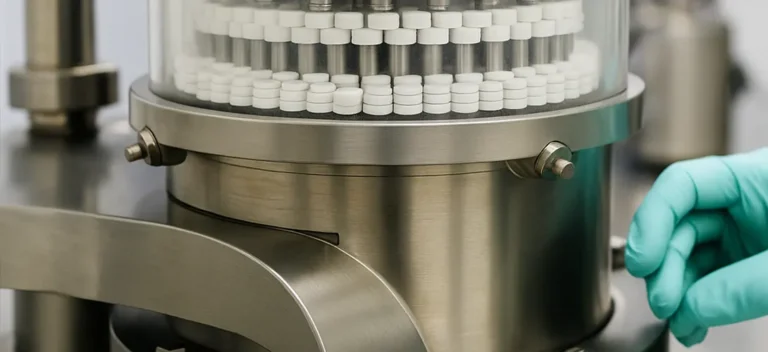In today’s high-stakes compounding environment, where regulatory scrutiny is sharper than ever and GLP-1 demand is at an all-time high, the quality of your API supplier isn’t just important. It’s everything.
One wrong decision could mean failed batches, regulatory flags, damaged patient trust, or worse: putting your pharmacy license at risk.
Whether you’re operating a 503A or 503B facility, here’s how to vet your API sources before they cost you.
1. Start With FDA Registration and Actually Verify It
Don’t take a vendor’s word for it. Look them up.
A legitimate API supplier should be registered with the FDA and listed in the Drug Establishments Current Registration Site (DECRS). No registration? No deal.
✅ Action Step: Use the FDA database to confirm both the manufacturer and distributor are listed.
2. Demand a Full Chain of Custody
Your supplier should be able to trace the product from point of manufacture to your facility, with full documentation at every stage.
That means:
- Batch numbers
- Country of origin
- Handling records
- Transport conditions (especially for cold chain)
If the trail goes cold or missing, that’s a major red flag.
3. Ask for a Certificate of Analysis (COA), not a PDF from Google
A legitimate COA isn’t a generic document or templated sheet. It should:
- Match the exact batch you’re receiving
- Be issued by the manufacturer or validated third-party lab
- Include test results for identity, purity, and potency
Fake or copy-pasted COAs are a real problem in this market. If anything looks off, assume it is.
4. Beware of “Too Good to Be True” Pricing
If you’re being offered API at a price that seems too low compared to trusted, compliant suppliers, it probably is.
Cut-rate API often comes from:
- Unregistered foreign labs
- Unknown chemical resellers
- Suppliers who disappear when things go wrong
Remember: you’re not just buying powder, you’re buying risk.
5. Ask the Hard Questions (and Expect Clear Answers)
If your supplier can’t quickly answer:
- “Where was this manufactured?”
- “How is it shipped and stored?”
- “Do you have DSCSA-compliant records for this lot?”
Then walk away.
Silence, vague responses, or delays in documentation are all signs of a vendor that shouldn’t be trusted with high-risk product.
How Wellgistics Approaches API Differently
We don’t sell shortcuts. We source only from FDA-registered manufacturers, supply full documentation, and deliver traceable API that compounders can rely on.
If you’re sourcing active pharmaceutical ingredients or preparing for increased regulatory scrutiny, we’re here to help you stay compliant, competitive, and protected.
Need verified API? Let’s talk.





